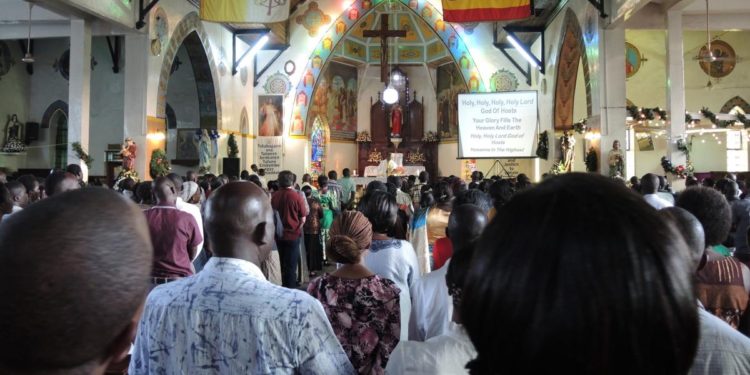By Peril Writer
In the heart of East Africa lies Uganda, a nation once known as the “Pearl of Africa” for its vibrant culture and breathtaking landscapes. Yet, beneath this surface beauty lies a nation torn asunder by the divisive influence of religion. What was meant to unite communities has instead become the fault lines of business, politics, intellect, and confusion, leaving Uganda in a perpetual state of mourning.
For centuries, Uganda has grappled with the intricate dance between religion and society. The legacy of colonialism, with its imposition of foreign faiths, coupled with the influence of missionaries, has left an indelible mark on the country’s religious landscape. Today, this complex web of faith manifests itself in every aspect of Ugandan life, shaping not only personal beliefs but also socio-political dynamics.
In the realm of business, the saying goes: “If you want business, contact the Muslims.” The Muslim community, with its strong networks and trust within the community, has carved out a significant presence in Uganda’s economic sphere. However, this economic prowess has led to tensions, with accusations of favoritism and exclusion simmering beneath the surface, leading to economic disparities that exacerbate social divisions.
Politics, the arena of power and influence, is deeply entangled with religion. “Politics talk to the Anglicans,” they say, highlighting the prominent role of the Anglican Church in Uganda’s political landscape. The Anglican Church, with its historical ties to colonialism, maintains a strong influence over political leaders and their decisions. However, this close relationship has bred resentment, with allegations of undue influence and manipulation undermining the democratic process and eroding trust in government institutions.
For intellectuals seeking enlightenment and discourse, the Catholic Church has long been a beacon of scholarship and critical thinking. Catholic-run universities and institutions attract students and scholars from across Uganda and beyond. Yet, even within these bastions of learning, the specter of religious dogma stifles dissent and constrains intellectual freedom, hindering Uganda’s progress towards a knowledge-based economy.
Amidst this religious tapestry lies confusion and uncertainty. “Speak to the born-again Christians,” they say, acknowledging the enigmatic nature of this movement. Born-again Christianity, with its emphasis on personal salvation and spiritual renewal, has captured the hearts and minds of many Ugandans. However, this fervent zeal often veers into extremism, fueling divisions and sowing discord within communities, further fracturing the nation along religious lines.
As Uganda grapples with the legacy of its past and the uncertainties of its future, one question looms large: Is Uganda safe? The divisive influence of religion threatens to tear apart the fabric of society, leaving communities fractured and vulnerable. In a country where unity was once celebrated, the cries of the people echo through the streets, mourning the loss of a shared identity and a common purpose.
Yet, amidst the tears and turmoil, there is hope. Hope for a future where religion serves as a source of unity rather than division, where the diverse tapestry of faiths comes together to build a brighter tomorrow for all Ugandans. But achieving this vision requires confronting the uncomfortable truths of Uganda’s religious divisions and working towards reconciliation and understanding.
In the end, the fate of Uganda lies in the hands of its people. Will they allow religious divisions to continue tearing apart the nation’s soul, or will they come together in solidarity to forge a path towards peace and prosperity? Only time will tell. Until then, Uganda weeps, her tears a poignant reminder of the challenges that lie ahead.






Discussion about this post